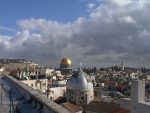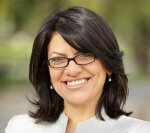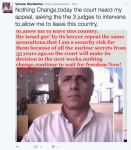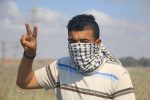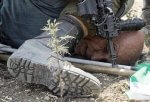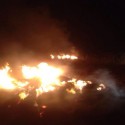By Abdennour Toumi
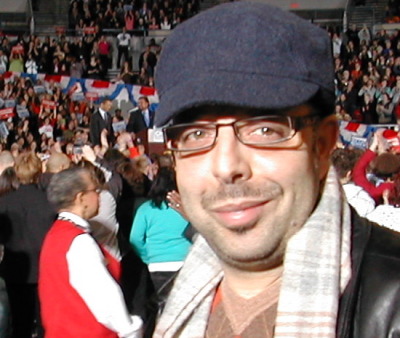
Paris, France — Across the mythical French capital, from Paris’ northeastern banlieue to Republic Square, symbol of liberty and conviviality, a pleasant evening to enjoy.
On Friday the 13th, do you remember eleven months ago, a policeman was shot dead in the street in the eleventh arrondissement before twelve satiric journalists were killed. On Friday the 13th, Stade de France, Bataclan Hall, tenth, eleventh arrondissements, Voltaire Boulevard, Beaumarchais Boulevard, Friday night, thousands of football fans of different nationalities, ethnic groups and faiths gathered in the Stade de France for a friendly classic match — France vs. Germany.
Across the mythical French capital, from Paris’ northeastern banlieue to Republic Square, symbol of liberty and conviviality, a pleasant evening to enjoy.
France has been facing terrorist tracks for decades but what is interesting, this law-and-order matter becomes a national security issue and questions the geo-political imperatives of France’s MENA defense and foreign policy. Assuredly this tragedy stands as a direct threat to France’s republic values.
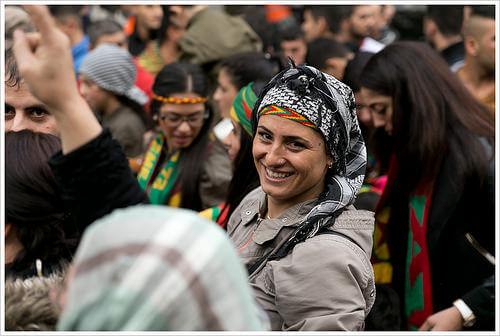
The conspirators in this tragedy have been killed either in a suicide explosion or in an assault operation. So Friday night the eyes of the world were fixed on Paris, particularly at the Bataclan concert hall where hundreds of “Eagle of Death Metal” fans gathered to hear the band, leave the stresses of the world and live for the joy of the moment.
But the eagle of death was hovering over the tenth and eleventh arrondissements and innocent souls vanished. Three young men showed up at the concert hall chasing the “devil in hell,” according to their belief, causing panic and horror, and bringing death. The “ultimate heinous acts” at the Bataclan, tenth, eleventh, Voltaire and Beaumarchais stand-offs can be read as a story-line extension of similar events in Toulouse, March, 2012 and Charlie Hebdo, January, 2015.
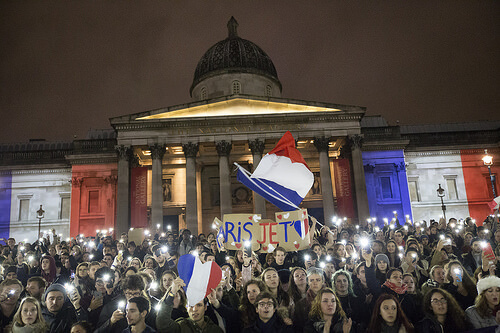
The episode in Toulouse, unlike Charlie Hebdo and the tenth and eleventh arrondissements, can be considered a singular achievement for the French domestic intelligence community. However, it is only an opening chapter for further potentially-serious threats on the home front posed by self-radicalized young Muslims in the West in general.
Thus one has to be cautious not to get caught up in the paranoia of the right-wing fringe and the sensationalist media view of these tragic events as a political statement at large.
The self-radicalization of these youths has become a selling point and an easy media cliche.
Nonetheless, these criminal acts represent a serious menace to domestic security and require increased vigilance on the part of domestic intelligence to deal with such phenomena.
However, to better understand the on-going misperception that has been transforming Western societies and breaking up old colonial systems’ dogma, there are some points to consider. Generic phrases about the neo-Jihadists of ISO hijacked the pluralist political process that was a direct answer and an antidote to their dystopian agenda and their tyrant masters.
Yet these sentiments did not fit with the ignorance of the rejectionist politicians and the disparaging forces in France. This point pushed the majority of public opinion in France, after the Charlie Hebdo tragedy, again into the trap of news headlines that treat such matters as a short-news item.
To this stance both the Westerners and the Arab/Muslims demonstrated their attachment to their inviolable right: free speech and respect. This is why one should not allow the mischaracterization of the ultras to dominate public discussion, whether in the Arab world or among Arab/Muslim communities in France.
This would provide a substantial answer to the West, because the Muslims in France and in the West in general have proven their understanding of Western values, and they believe dearly in tolerance and the rules of law and order of the republic. Above all there is a well educated and integrated middle class that has emerged from those dark suburbs that have become a hub for ISO ideology and manpower.
Frankly, when I heard the news on Friday night, I was with friends a few kilometers away from the Stade de France. I prayed, saying, please don’t tell me the perpetrators behind these events are of Algerian descent. This is not a schizoid reaction on my part, but rather a feeling of deep exasperation, as if each of us has to answer for six million Muslims in France! As if [we] are transcended by a sense of guilt.
Certainly it has been a long weekend for experts and analysts chewing hard on the sentiment of fear, and for [me] hearing them say that there is a radical Islamist taste against French values.
Indeed, consider walking with a kalashnikov, shooting at everything that moves, targeting locations that only someone who lives in Paris knows. Hence the originality of this tragedy is not a classic trademark of terrorist groups in the Middle East.
However, the field of battle has now crossed the line drawn by its enemy, is no longer on the defensive as in e-Re-Qaa, Ain el-Arab/Kobani and el-Mosul, but in the streets of Paris, and this new element of France’s war-on-terror approach post-Charlie, will change the war on the ISO dynamic.
The West’s all-security-and military approach has always been: “We fight them on their terrain rather than in our streets.” The Paris Black Friday tragedy has shown its failure and reveals the determination of a new enemy who has mastered perfectly France’s customs and life style.
How does one know whether a person is actively radical or not? ISO is a supra-national organization, with individuals who are locally involved and know their cities like a gang its neighborhood. These elements have espoused a “nuisance” ideology, are generally disenchanted with the French social order.
So what went wrong? The perpetrators of Paris’ Black Friday, like Kelkal, Merah and the Kouachi brothers, do they want to bring the French Republic to its knees?
For instance, one can sometimes credit the rejectionists’ message for inflaming the French youth of North African descent either by stigmatizing them by name or by calculated public policies aimed at them specifically; or simply by announcing the white color of the French nation and its Gaulois heritage like Ms. Morano declared recently.
Muslims practice their faith in Paris suburbs and across France; Islam is institutionally recognized as the second religion. The French did not discover Islam with Kelkal, Merah and the Kouachi brothers; however, an attack such as this one generates fear because these fanatics reside in countries whose cities maintain law and accountability.
Now, under the state emergency measures, liberty is scarified for security. Further, various Muslim leaders in the various cities are actively calling for “Ejteehad,’ not “Jihad,” in order to stop the sins that are being committed in the name of Islam, either through religious misunderstanding or nationalist romanticism.
In sum, on Friday the 13th, the supra-national terror monster bit its masters hard (Frankenstein syndrome) and buried their narcissistic cult — today, xenophobic politicians, journalists and novelists who have sparked hatred in the name of free speech, win.


- The Israeli-Palestinian Conflict: Is the Neither-Peace-nor-Security As-sumption Dominating Again? - June 7, 2021
- Algeria: “I Can See Clearly Now” - August 5, 2019
- Majesty Mohammed VI and General Gaïd Salah Tear Down This Wall! - July 29, 2019














